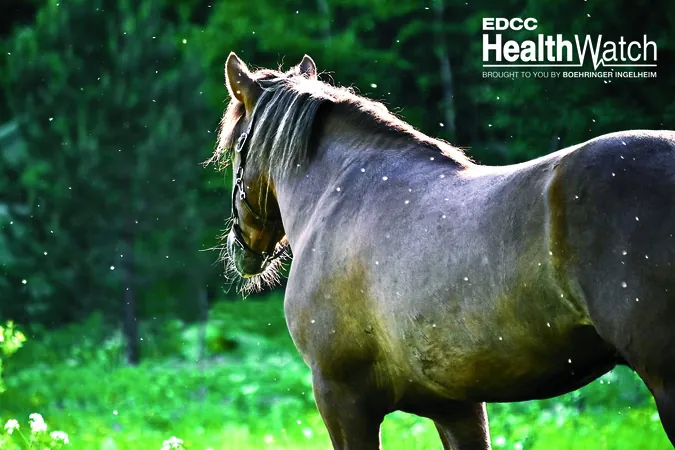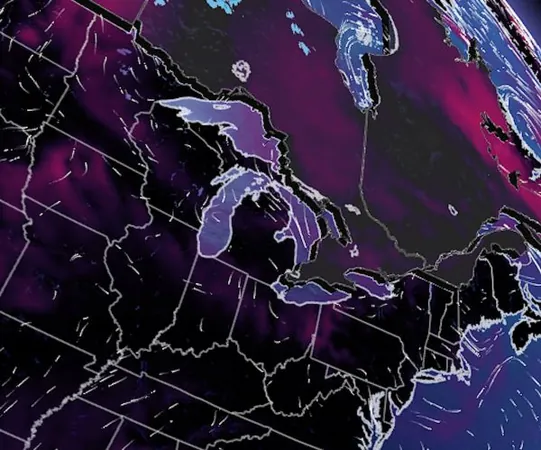
Urgent Alert: 3 Quebec Horses Test Positive for Deadly West Nile Virus!
2024-10-01
Urgent Alert: 3 Quebec Horses Test Positive for Deadly West Nile Virus!
In a concerning development, three horses in Quebec have recently tested positive for West Nile Virus (WNV). This alarming news comes from the regions of Chaudière-Appalaches and Montérégie, raising awareness of the ongoing threat posed by mosquito-borne diseases.
Case Breakdown:
1. Chaudière-Appalaches: A 4-year-old unvaccinated Quarter Horse gelding began showing symptoms including fever and paralysis on September 12. He was later confirmed positive for WNV on September 26, but there is good news: he is currently recovering! Another case in this region involved an unvaccinated 8-year-old gelding, who tested positive after showing clinical signs on September 3. Tragically, he was euthanized on September 11 due to the severity of the disease.
2. Montérégie: A 6-year-old unvaccinated gelding in this area exhibited symptoms starting on August 29 and was confirmed positive for WNV on September 19. Fortunately, this horse has now recovered.
What You Need to Know About West Nile Virus
West Nile Virus is transmitted to horses primarily through the bites of infected mosquitoes. Symptoms can be quite serious; while some horses may show no signs of illness, those that do can experience a range of symptoms including Flulike signs, such as lethargy and depression; Involuntary muscle twitching; Increased sensitivity to touch and sound; Altered mental states, resembling confusion or disinterest; Drowsiness and unusual walking patterns; Neurological signs, including weakness and uncoordinated movements.
Currently, there is no cure for WNV, and the mortality rate among infected horses can be as high as 30-40%. However, timely supportive care can aid in recovery for some affected horses.
Prevention is Key!
Vaccination is a vital measure for preventing West Nile Virus. Previous vaccinations require annual boosters, and veterinarians may recommend twice-yearly boosters in regions with extended mosquito seasons. For those who have never been vaccinated, a two-shot series is necessary over a few weeks for optimal protection.
In addition to vaccination, horse owners should take proactive steps to minimize mosquito exposure. This includes Elimination of standing water where mosquitoes breed; Using mosquito repellents designed for animals; Keeping horses indoors during peak mosquito activity hours.
Stay Informed, Stay Safe
The message is clear: vigilance and proactive measures are crucial to protect our equine friends from West Nile Virus. The health and safety of your horses can depend on it! Make sure to consult your veterinarian for guidance on vaccinations and effective mosquito control strategies to safeguard your horses.









 Brasil (PT)
Brasil (PT)
 Canada (EN)
Canada (EN)
 Chile (ES)
Chile (ES)
 España (ES)
España (ES)
 France (FR)
France (FR)
 Hong Kong (EN)
Hong Kong (EN)
 Italia (IT)
Italia (IT)
 日本 (JA)
日本 (JA)
 Magyarország (HU)
Magyarország (HU)
 Norge (NO)
Norge (NO)
 Polska (PL)
Polska (PL)
 Schweiz (DE)
Schweiz (DE)
 Singapore (EN)
Singapore (EN)
 Sverige (SV)
Sverige (SV)
 Suomi (FI)
Suomi (FI)
 Türkiye (TR)
Türkiye (TR)